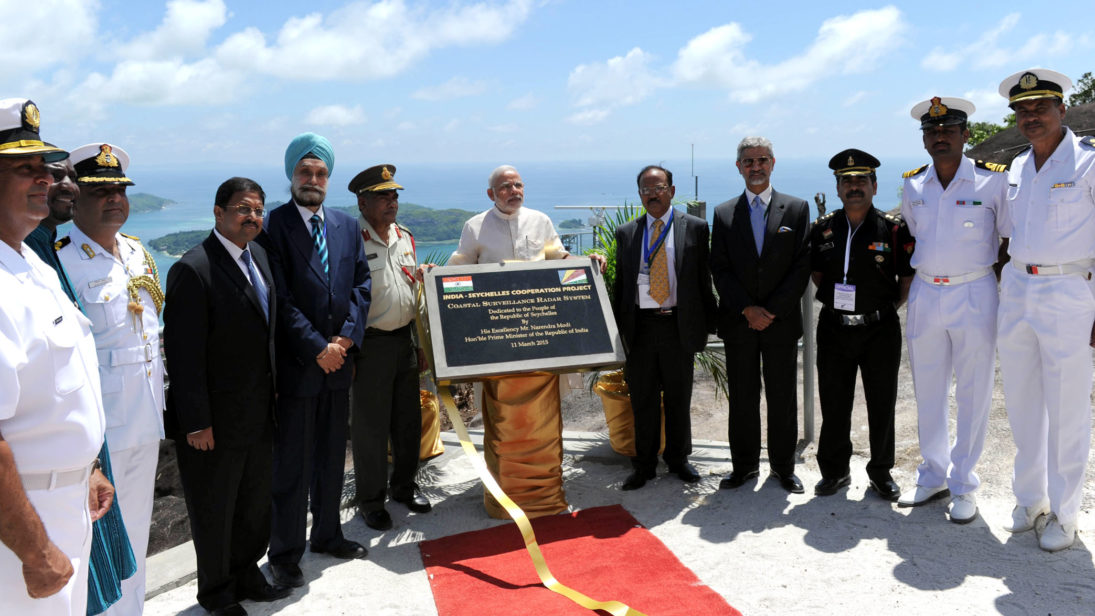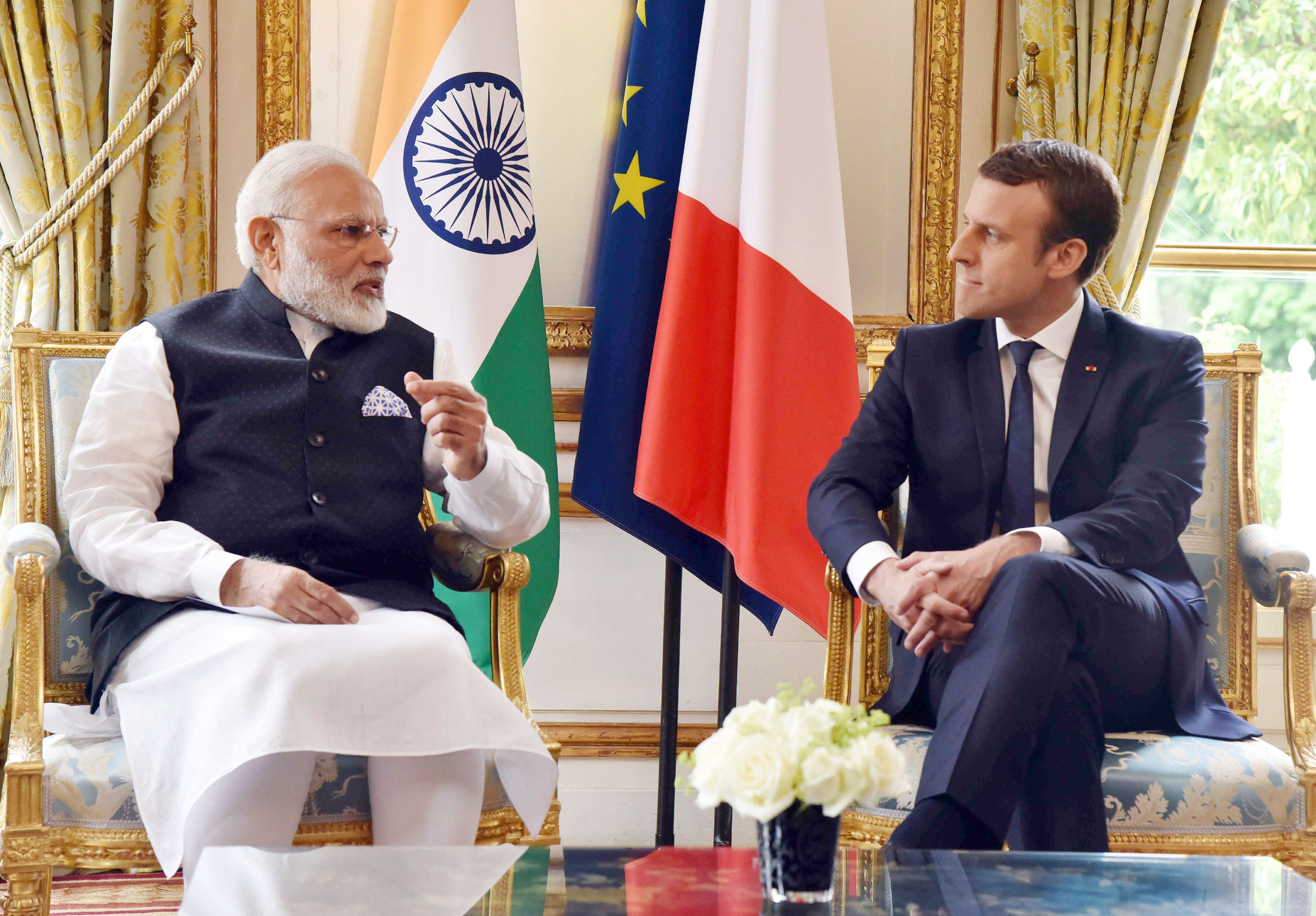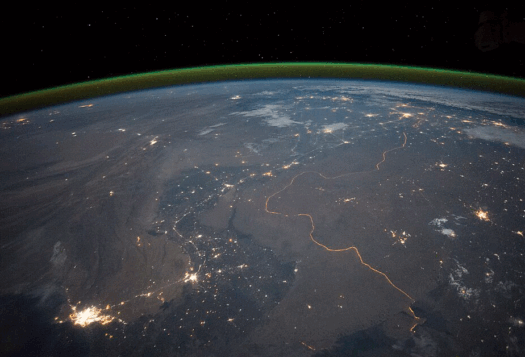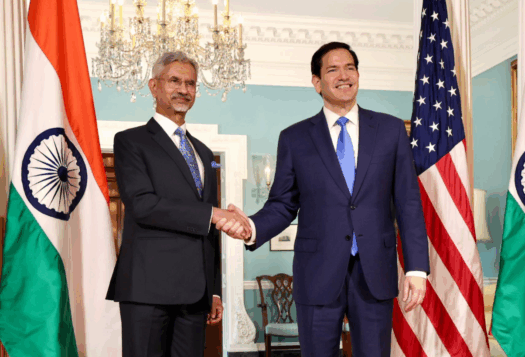
Recently, leaders from India, France, and the four Vanilla Island nations (Mauritius, Seychelles, Madagascar, and Comoros) met for the first time at the remote French island of La Réunion in the Indian Ocean to explore expanding the scope of their economic, developmental, and security partnership. This meeting is a step in the right direction, which works to correct the Indian leadership’s past neglect of the Western Indian Ocean (WIO). At a time when more countries are viewing the Indo-Pacific as a unified and shared strategic space and Prime Minister Narendra Modi is calling for an “Indo-Pacific Oceans Initiative,” India’s increased attention towards its western seaboard to find ways to increase the security and stability of its maritime domain is appropriate and much-needed.
India’s broad neglect of the WIO stemmed mainly from the fact that until the beginning of this decade, the Indian Ocean was peaceful, its littorals were largely subdued, and there was no countervailing power against the Indian Navy in these waters.1 However, in the last few years, China has increased its presence in this region, bringing great power rivalry right to India’s doorstep. This is something that India cannot afford to overlook—the ability of foreign naval vessels to maintain a presence in the Indian Ocean could soon overcome the advantages of geography that India currently enjoys and pose challenges to New Delhi.
In such a context, the African island nations in the WIO and France are critical allies for India to be able to secure its national interests, emerge as a net security provider for the region, and establish an Indian sphere of influence in the Indian Ocean Region (IOR).
Significance of the Western Indian Ocean to India
The WIO’s importance to India was highlighted in the Indian Navy’s 2015 Maritime Security Strategy as a primary area of interest for the navy since the region hosts a number of key maritime “choke points” at the entrance of the Indian Ocean (such as Bab-el-Mandeb, the Mozambique channel, the Strait of Hormuz, and the Gulf of Aden). Developing a collaborative partnership with African island nations in this region would help India patrol and protect these maritime choke points. Further, through the development of naval infrastructure on Assumption Island in Seychelles and Agalega Island in Mauritius, these island nations would facilitate the Indian Navy to maintain a sustained and regular presence in the region.
Patrolling and protecting these waters is critical for India because of its significant energy and trade flows through the region. According to the Indian Ministry of Shipping, Indian imports through the Gulf of Aden are valued at USD $50 billion while exports total USD $60 billion. Additionally, because India imports over 80 percent of its oil, the discovery of oil and gas blocks off Tanzania and Mozambique’s coast, as well as the rich natural resource profile of the WIO (which has been conservatively estimated to be worth USD $333.8 billion), have further attracted Indian interests.
Existing Cooperation
The [Western Indian Ocean]’s importance to India was highlighted in the Indian Navy’s 2015 Maritime Security Strategy as a primary area of interest for the navy since the region hosts a number of key maritime “choke points” at the entrance of the Indian Ocean […] Developing a collaborative partnership with African island nations in this region would help India patrol and protect these maritime choke points.
In recognition of these interests and a growing Chinese presence in this region, the scope of Indian engagement with the WIO is now diversifying. Previous Indian involvement with the Vanilla Islands came mostly in the form of India’s cultural, economic, and defense relations with Mauritius and Seychelles—in fact, India almost intervened during a coup attempt in Mauritius (Operation Lal Dora, 1983) and assisted in preventing a coup in Seychelles (Operation Flowers are Blooming, 1986). However, India’s recent efforts to re-engage with the WIO are much broader, encompass larger swathes of the region, and can be characterized by its vision of Security and Growth for All in the Region (SAGAR). Under this framework, India sees itself as having a pivotal role to play in enhancing trade and regional integration in the region and is committed to capacity building, keeping the global maritime commons open and accessible for all, sharing submarine safety information, and coordinating incident responses. For instance, India recently set up an Information Fusion Center-Indian Ocean Region (IFC-IOR), which has already begun to share maritime data and exchange information with some regional organizations that track developments in East African waters on incidents such as piracy, armed robbery, and illegal fishing. With some of the African island nations in the WIO connected to the coastal radar network that serves the IFC-IOR, information centers like this would allow India to play a more prominent role in increasing regional maritime domain awareness.
Since France is the most established player in the WIO by virtue of having territory there and shares India’s concerns about China’s maritime activities in the region, it is natural for New Delhi to want to deepen security ties with Paris. At the beginning of this year, India and France engaged in the second iteration of their maritime dialogue to foster greater collaboration in the Indian Ocean, which included signing a White Shipping Agreement to enable information sharing on maritime traffic in order to improve maritime domain awareness in the IOR. Additionally, in a bid to augment their ship-tracking capabilities in the Indian Ocean, India and France are co-developing the world’s first space-based automatic identification system (AIS) to track ship movements on a real-time basis. Given reports of Chinese submarines and illegal fishing trawlers in the Indian Ocean region, this is expected to significantly boost India’s coastal surveillance mechanism, particularly in the Mozambique Channel and the Gulf of Aden.
An additional demonstration of the increasing importance that India is attaching to these island nations was Vice President Venkaiah Naidu’s visit to Comoros recently. While there, Vice President Naidu signed a defense cooperation agreement with the nation, which means that India now has defense agreements with all four Vanilla Island nations. This symbolizes the increasing role that India sees for these nations as key stakeholders in building a regional security architecture.

How Working with India Benefits African Island Nations
As Abhijit Singh has argued, “there is an increased awareness among African nations that their major maritime challenges stem from a lack of effective governance in the maritime commons.” Their inability to protect their declared maritime zones from rampant overfishing, small arms and drugs smuggling, and the adverse effects of climate change and pollution threaten to derail any efforts to build what Singh calls “an effective maritime governance system.” Therefore, collaborating closely with the Indian Navy, which has blue water capabilities, would help African littorals develop a robust maritime security architecture. India is well-placed to assist African countries with both hard security assets to undertake relevant tasks as well as capacity-building by training African naval and defense officers in Indian institutions.
African island nations in the WIO and France have emerged as critical partners for India in a region that it cannot afford to lose to a proactive and assertive China. If India wants to emerge as a net security provider in the Indian Ocean and secure its own sphere of influence in the region, it is imperative that it bolster its security, economic, and developmental ties with countries that have stakes in the IOR.
Blue economy, aquaculture, and mariculture2 are other avenues where India can assist African island nations, which are the biggest proponents of the concept of blue economy since these small countries are most vulnerable to the adverse effects of climate change and are heavily dependent on ocean resources for sustenance and livelihood. The areas where India can assist African island nations are wastewater recycling, water reuse, bio-tourism, exploration of marine resources, harnessing renewable energy sources like tidal and solar energy, and marine-based green activities like ocean aquariums, coastal diversity parks, and marine reserve areas.3
Additionally, African island nations like Mauritius and Seychelles have extensive Exclusive Economic Zones (EEZ). Since these nations have limited capacity and resources, collaboration with India could help these nations conduct EEZ surveillance, carry out joint hydrographic surveys, and map their continental shelf.
What More Can India Do?
The African island nations of the WIO provide India with a unique opportunity to play a leading role in shaping the emerging maritime security architecture of the WIO. Although these nations have always played an important role in influencing maritime strategy in the region, until recently, India significantly underappreciated their importance. Despite a lackadaisical start, India has begun revising its strategic posture and is now re-engaging with these African nations who sit at the crossroads of critical waterways. However, much more needs to be done.
To start with, India should work with France to expand its cooperation with the African island nations of the WIO. Together, India and France can work with these African island nations, in addition to the East African littorals, on a range of identified areas of collaboration, such as maritime port development and connectivity, blue economy, tourism, healthcare, hospitality, and skills development. Possible countries wherein projects can be explored are Mauritius, Seychelles, Kenya, and Tanzania.
Without improved relations with these nations, India will be unable to implement the measures that it needs to adequately counter China’s presence in the region. To be able to better monitor the People’s Liberation Army-Navy (PLA-N) incursions into the WIO, India needs to implement a Coastal Surveillance Radar (CSR) system in all the island nations in the region, including updating those that are already existing in Seychelles and Mauritius. Along with those in Sri Lanka and the Maldives, the new and updated systems would allow India to develop its own chain of CSR stations across the Indian Ocean. As Darshana Baruah proposes, India should consider placing defense attachés in Vanilla Island nations, in order to better understand the security imperatives of the region. Additionally, as she notes, India would do well to explore deploying more P-8I and other maritime reconnaissance aircraft in the region, as these are crucial for improving the maritime domain awareness of both India and the island nations in the region.
African island nations in the WIO and France have emerged as critical partners for India in a region that it cannot afford to lose to a proactive and assertive China. If India wants to emerge as a net security provider in the Indian Ocean and secure its own sphere of influence in the region, it is imperative that it bolster its security, economic, and developmental ties with countries that have stakes in the IOR.
Editors Note: November 25th, 2019
An earlier version of this article omitted a reference to Darshana M. Baruah’s October 2019 Economic Times article, “African islands in the Indian Ocean – Looking beyond Delhi’s strategic blindness.” This article has been edited to include the reference.
***
Image 1: Government of India via Wikimedia Commons
Image 2: Government of India via Wikimedia Commons
- These comments were made during a workshop on “Indian Naval Deployment and Maritime Strategy” held under Chatham House Rules on July 30, 2019 at the Observer Research Foundation, a New-Delhi based think tank.
- The World Bank defines blue economy as “the sustainable use of ocean resources for economic growth, improved livelihood and jobs, and ocean ecosystem health.” Aquaculture and mariculture are the cultivation of aquatic plants and animals, such as fish and algae, under controlled conditions. The difference is that aquaculture pertains to freshwater and mariculture pertains to saltwater.
- These possible areas of cooperation in blue economy have been identified based on the Africa Union’s 2050 Africa’s Integrated Maritime Strategy. India is in a position to assist African island nations in these identified areas due to the technological advancements it has made over the last decade, especially in the field of Triple A (appropriate, affordable, and adaptable) technology.


